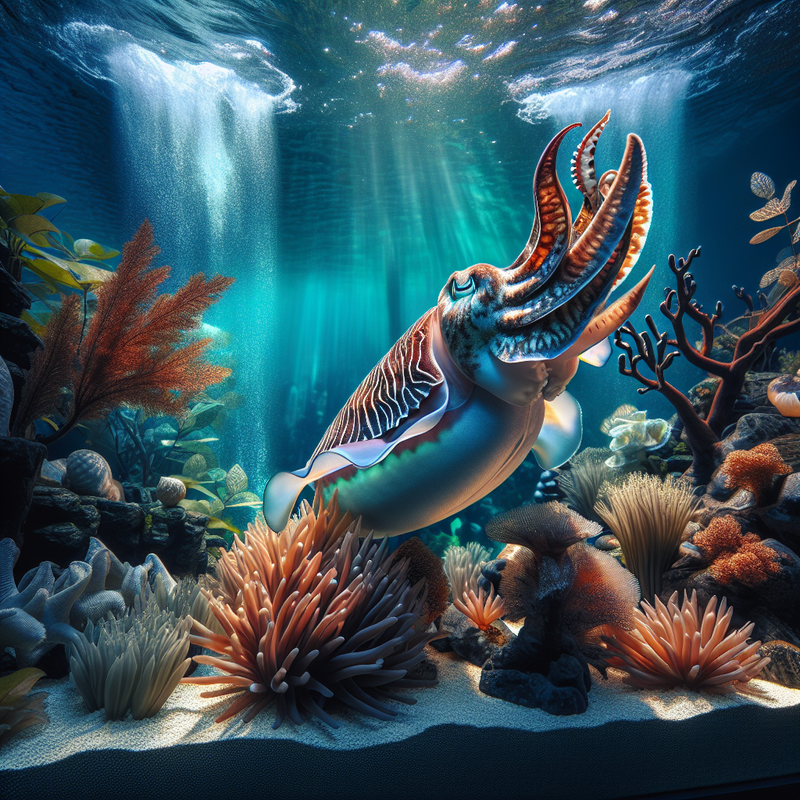Recent scientific findings have unveiled that cuttlefish exhibit a remarkable degree of cognitive prowess, with abilities surpassing previous assumptions
When subjected to an investigative procedure akin to an assessment designed for human juveniles, these cephalopods have shown an impressive caliber of intellect that has left scientists in awe.
Adapted Underwater Marshmallow Experiment
This investigative endeavor took cues from the well-known “marshmallow test,” which is a psychological trial used to assess the capacity for impulse control and deferred satisfaction. Children in the original experiment were given a choice of immediate gratification with one marshmallow or a doubled reward if they could resist temptation for a period. Analogously, cuttlefish were tasked with a choice between a less preferable shrimp immediately accessible and a more tantalizing live grass shrimp that required a wait. See-through partitions and moving panels regulated when the animals could get to the treats, prompting variable responses — some cuttlefish succumbed to the readily available option while others demonstrated restraint, delaying consumption for a more desirable offering for times spanning 50 to 130 seconds.
These waiting durations, as highlighted by University of Cambridge’s Alexandra Schnell, put cuttlefish on a similar plane with avian species known for their intelligence, such as parrots and crows, in terms of cognitive might.
Associating Delayed Gratification with Learning Competencies
Moreover, the study also probed into the relationship between an individual’s willpower and its learning capacities. Cuttlefish were taught to link specific hues to the presence of food, and upon successful learning, they were then challenged to adapt when the rules were inversely applied. Resultantly, Schnell notes, “the cuttlefish that excelled in learning the color associations also showcased an enhanced propensity for self-discipline.”
The subjected cephalopods who demonstrated patience in foregoing immediate consumption were also agile in adapting their behavior when the associated colors were switched, indicating an adaptable intelligence capable of adjusting impulses and behavior based on new variables.
Published within the journal Proceedings of the Royal Society B, these revelations mark a significant stride in validating the association of self-control and intelligence beyond human and other primate species.
Evolutionary Insights Arising from Cuttlefish Conduct
Such groundbreaking discoveries compel a reevaluation of prevailing theories surrounding the evolution of intricate thought processes, surmising that complex traits like restraint are not uncommon in the animal world and span across various levels of the evolutionary tree, encompassing invertebrates such as cuttlefish. The hypothesis posits that the observed patience could be an evolutionary trait derived from the natural predatory behaviors cuttlefish employ, which often involve lengthy static camouflage interspersed with short, deliberate moments of hunting.
This exhibition of patience may very well be a strategic evolutionary advantage for cuttlefish, allowing them to maximize their energy gain from consuming higher-quality nourishment, all the while lessening their own vulnerability to predators. This conduct finds parallels in the high-level behaviors of fellow cephalopods such as octopuses and squids, further evincing that similar sophisticated behaviors can arise independently in different lifeforms due to convergent evolution.
These pioneering insights urge the scientific community to expand its contemplation of intelligence across the marine ecosystem and to delve into the multifaceted nature of trait development among various species.




